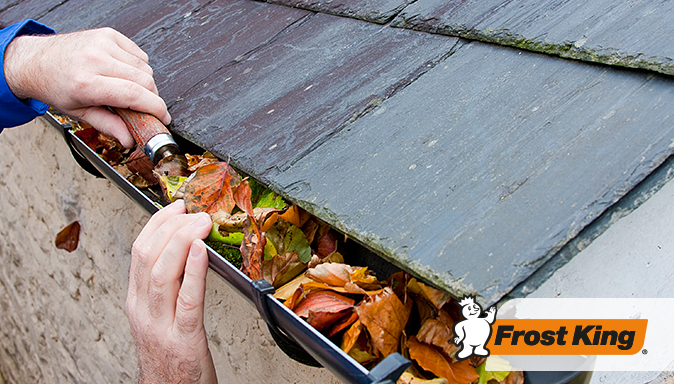If only the walls could talk, it would be so much easier to take care of your home, right?
Well, what if we told you your house CAN tell you things? You just might not understand your home’s language. We’re here to translate the subtle (and not so subtle) signs that your house is asking for help. Read on to learn what your house is trying to tell you—and what to do about it.
1. You’ve Got Icicles and Ice Dams on Your Roof: Icicles hanging from the eaves of your roof may look picturesque in the winter, but they’re a sign that there’s a big problem with your roof and ventilation. Not only can they rip the gutters right off your house, ice dams and icicles can loosen roof shingles and let water get inside. To get rid of icicles and ice dams for good, you need to figure out how to make the roof the same temperature from the ridge to the eaves: that means making sure your attic is well insulated, eaves and ridges are ventilated, attic hatches and ducts are sealed, and any kitchen, bath, or dryer vents are vented outside—not into your attic space. You can also add one of our Electric Roof Cable Kits that heat up to stop ice from forming. Watch this video for easy step-by-step installation instructions:
2. You Found Weird Granules in Your Gutters: Next time you clean out the gutters, check to see what’s clogging them. Do you see a lot of little granules alongside the leaves, twigs, and other yard debris? Your roof’s shingles are coated with granules to protect them from UV rays. Once they start washing away, the shingles are past their prime and will need to be replaced soon
3. Your Ceiling is Stained: Look up: do you see any stains or discoloration on the ceilings or walls? Chances are, your roof has sprung a leak—and this is one repair you should not put off. Even small leaks can lead to big, expensive problems like mold, rotted wood, sodden insulation, and damaged plaster or drywall, so find the source of the leak and get it fixed pronto.
4. White, Powdery Stains Bloomed on Chimney Bricks: Are there weird white stains on your chimney? Even if you can easily brush it off, you shouldn’t ignore this white powdery substance: it’s called efflorescence and while the staining itself won’t damage the bricks, it is a sign that moisture is building up in the chimney and your chimney is crying for help. The cause for the moisture build-up could range from a cracked structure or improper sealing to a missing cap or a cracked or broken flue liner—all things that mean your chimney is being damaged from the inside out. An annual chimney inspection is key to identifying moisture damage in your chimney before it causes any significant damage.
5. Paint is Peeling or Bubbling: Bubbling or peeling paint could simply be a sign of a bad paint job or that the wrong type of paint was used. But it could also be a sign of termite damage or that there’s a leak somewhere behind the wall—so before you repaint, make sure you have an exterminator come out to check for bugs and find and fix any leaks that could cause even worse damage.
6. Your Water Smells Gross. Does the water smell funky when you turn on your faucet? Foul smelling water isn’t necessarily a sign that your water supply is contaminated, but you should figure out what’s causing the odor. If your water reeks of rotten eggs, sulfur bacteria has somehow found its way into your water supply: it could mean bacteria is growing in your drain, your hot water heater (this article explains how to replace the hot water tank’s anode rod and eliminate the smell), or your water source. An earthy or fishy odor can mean there’s organic matter in the drain, well storage or pressure tank, or, if you have well water, that your water source is contaminated and needs to be shock chlorinated. A gasoline or fuel odor is rare but serious: contact your water supply authority if you have city water or a licensed well driller or pump installer if you have well water.
